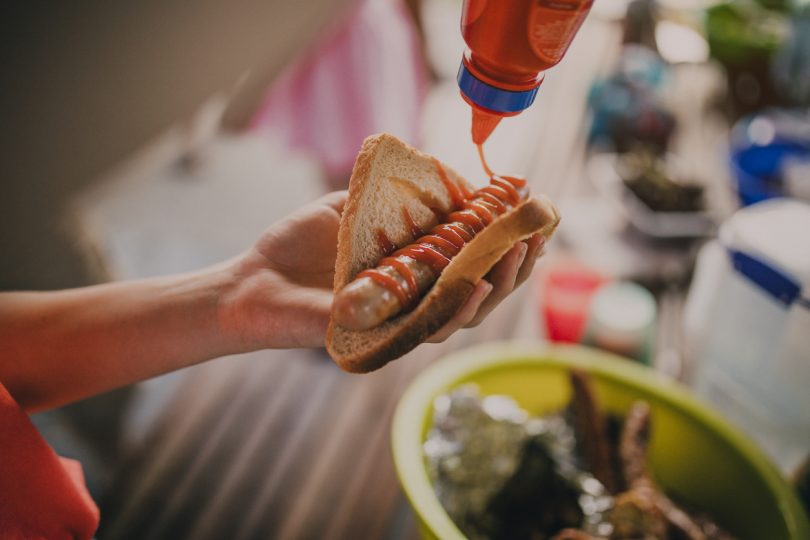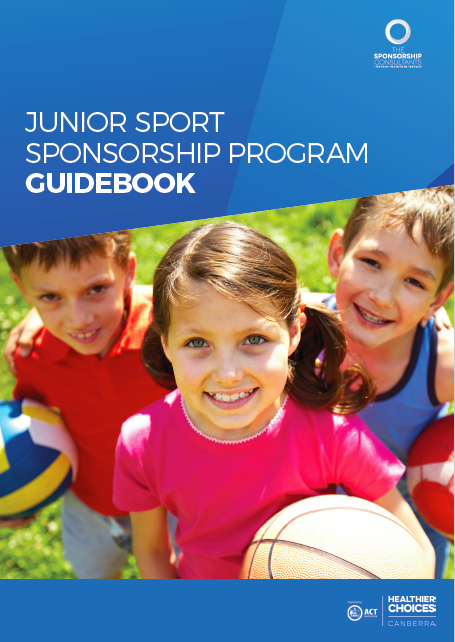
Sporting clubs can do more than resorting to selling sausages to raise funds – here’s how.
Canberra sporting clubs are telling me that it has never been harder to raise funds for facilities, equipment and participation.
The feeling is that potential funders within the business community want greater justification for spending money on sporting teams, and there is only a finite amount available through government grants.
For many sports organisations that are operating through the goodwill of volunteers, time and energy are often in short supply and fundraising can take up a major part of scarce resources. Rather than cry poor, perhaps Canberra sporting clubs need to seek alternative and innovative ways to raise funds and engage the business community. Easier said than done.
To this end, I have for the past two months been looking at ways a number of sports organisations and individual athletes in Canberra are bypassing traditional ways of fundraising. One way is through the Australian Sports Foundation.
Just over 100 clubs and organisations are now fundraising via the Foundation. Based at the AIS and created by the Hawke government in 1986, the Australian Sports Foundation now operates independently.
The way it works is that sports, sports organisations or state and national representative athletes register with the Foundation.
People then donate to the club, organisation or athlete through the Foundation. The money is then given to the club, organisation or athlete and since the funds are facilitated through the Foundation, it is tax deductible.

The ACT Government’s Junior Sport Sponsorship Program Guidebook aims to help Canberra’s community make positive sponsorship decisions. Photo: ACT Government.
Effectively the sports club, organisation or athlete receives the donated funds and the donor receives their tax benefit.
In Canberra, it has been used to raise money for a wide range of uses including track and field equipment, lights for tennis courts, wheelchair sports and buying equipment for football clubs. To find out more simply go to the Australian Sports Foundation website.
Another fundraising concept is the Healthier Choices Canberra Junior Sport Program.
The aim of Healthier Choices Canberra is to assist sporting clubs to look at alternatives to raising funds. In the past, sports have very much relied on selling as many cans of soft drink, sausages and chocolates as possible to keep afloat. Then there is sponsorship by fast-food operators. This, of course, is counter-productive to promoting a healthy lifestyle.
Healthier Choices Canberra is working with sporting codes in the ACT on a pilot program to investigate alternative ways to raise funds.
One option is to provide a healthier alternative at the canteen. The Majura Soccer Club is a prime example of an organisation that has looked at providing healthier options. They sell very tasty curries as an alternative to the sausage sizzle. People are able to choose rather than have no healthy alternative.
Healthier Choices Canberra is working with other clubs to look at alternatives to meat pies and sausage rolls.
They are also helping sporting organisations work with businesses that don’t market unhealthy food and drink to children in Canberra to help build a positive relationship between the two parties. Potential sponsors need to know the tangible benefits gained through support. The belief is that sponsorship is not just about how much money can be raised by going to the business community but how to develop a mutually beneficial relationship.
Businesses can register with Healthier Choices Canberra. If your organisation is interested, contact Healthier Choices Canberra to find out how you can benefit from connections with local sporting groups.
Over the years I have seen a number of businesses and companies using a relationship with sport to do more than simply hand over funds.
The business might be approached by a sporting group for funds to update their facilities. Rather than just giving money for the project to be undertaken, the business uses the project as a team building exercise for its employees. The business will buy all of the materials with their employees carrying out the facility refurbishment with the support of experts if required.
Other businesses in Canberra are opting to have their employees work for charities rather simply hand over funds.
I have had an involvement over the years with Snedden Hall and Gallop (SHG) and the Be the Best You Can Be sports carnival for 350 students with a physical or intellectual disability playing modified sports. The staff of SHG all engage in the event at the AIS, doing everything from marshalling to making lunches.
This only touches upon some of the initiatives in place to support sports clubs, organisations and individual athletes. There are alternative ways of raising funds and in many cases, it provides sport and business with the opportunity to look beyond a simple financial transaction and consider the mutual benefits that can be secured through a partnership.
Do you know of any other fundraising initiatives that support sporting clubs and organisations? Let us know by commenting below.
Original Article published by Tim Gavel on the RiotACT.







